Term Two
Level Five
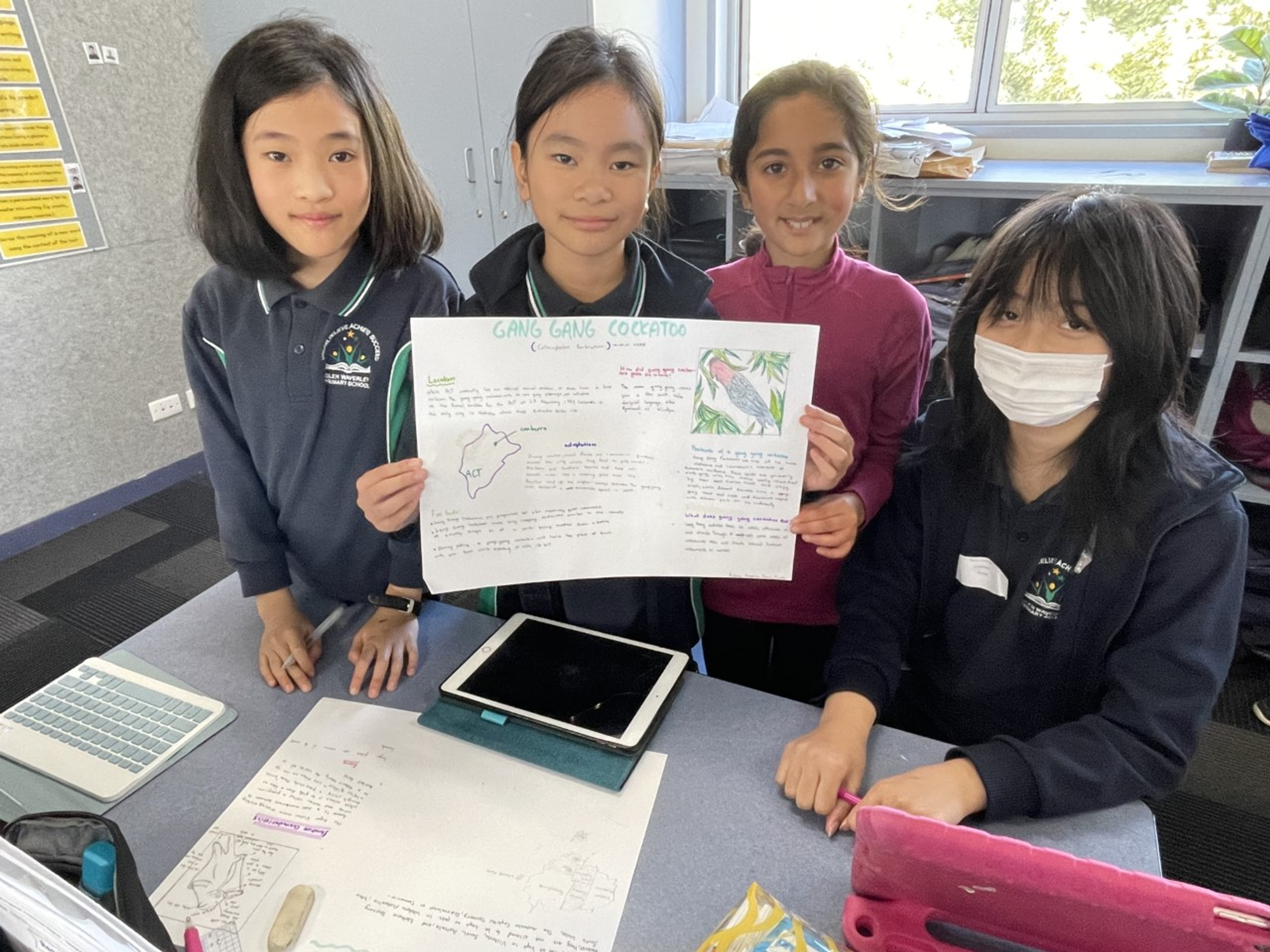
Term Two
Level Five
Dear Parents and Guardians,
Welcome back to another fabulous term of learning as we extend a warm welcome to all our new families that have joined our learning community. Additionally, we welcome back Annie Lui who was teaching in South Korea during 2022. Annie will be taking over 5C as Trish Singh has left for maternity leave. We have many exciting experiences to look forward to, including a local community walk to Hinkler Reserve, an excursion to The Royal Botanical Gardens in Cranbourne, and Education Week open morning. Please take a few moments to read what learning we have planned for the term ahead.
Dear Parents and Guardians of Level 5,
My name is Annie Lui and I’ve been part of the GWPS teaching community since 2018. Some of you may have seen me around school for the last couple of years. During 2022, I made the move to South Korea to embark on a one-year teaching adventure. This has been one of the most eye-opening experiences I’ve had; as it challenged me to see how I can adapt and learn to live in a country where I don’t speak the language fluently. I was fortunate enough to be placed in two public schools in the city of Busan, a port city down in the south of South Korea. During my year of teaching there, I was able to deepen my teaching practice to accommodate students who were learning English as a second language, as well as acquire new skills to implement into my teaching pedagogy here. Busan was a beautiful city to live in. It is surrounded by attractive beaches, mountains and the livelihood of a bustling city. I spent majority of my year not only teaching the students there, but also exploring the country from top to bottom.
I am super excited to be back this year with Level Five, especially teaching and journeying 2023 with 5C! Feel free to come and say ‘hi’ if you see me in the yard, or my door is always open before and after school. I’m looking forward to a wonderful year with the Level Five students in 2023!
Key Vocabulary to Support Each Learning Area:
| English | Maths | Inquiry | YCDI |
| Narrative, Engaging, Story Arc, Foreshadowing, Figurative Language, | Outcome, Fractions, Probability, Frequencies, Chance and likelihood | Flora, Fauna, Biome, Impact, Environment, Adaptations, Native | Self-regulation, Awareness, Resources, Energy Levels, Emotions |
Throughout Term Two, students will build a deeper understanding of their own emotions which can help them connect with others. The key ideas we are going to explore this term are;
A tool we are going to use to deepen this experience is The Zones of Regulations!
The Student Voice JSC representatives in Level Five were integral in planning this process as they collected their peers' ideas on;
Our Student Voice representatives will continue to co-lead our YCDI learning and collaborate with teachers and each other to ensure our learners are being guided in achieving their personal learning goals.
To support your child’s learning at home, you could encourage them to:
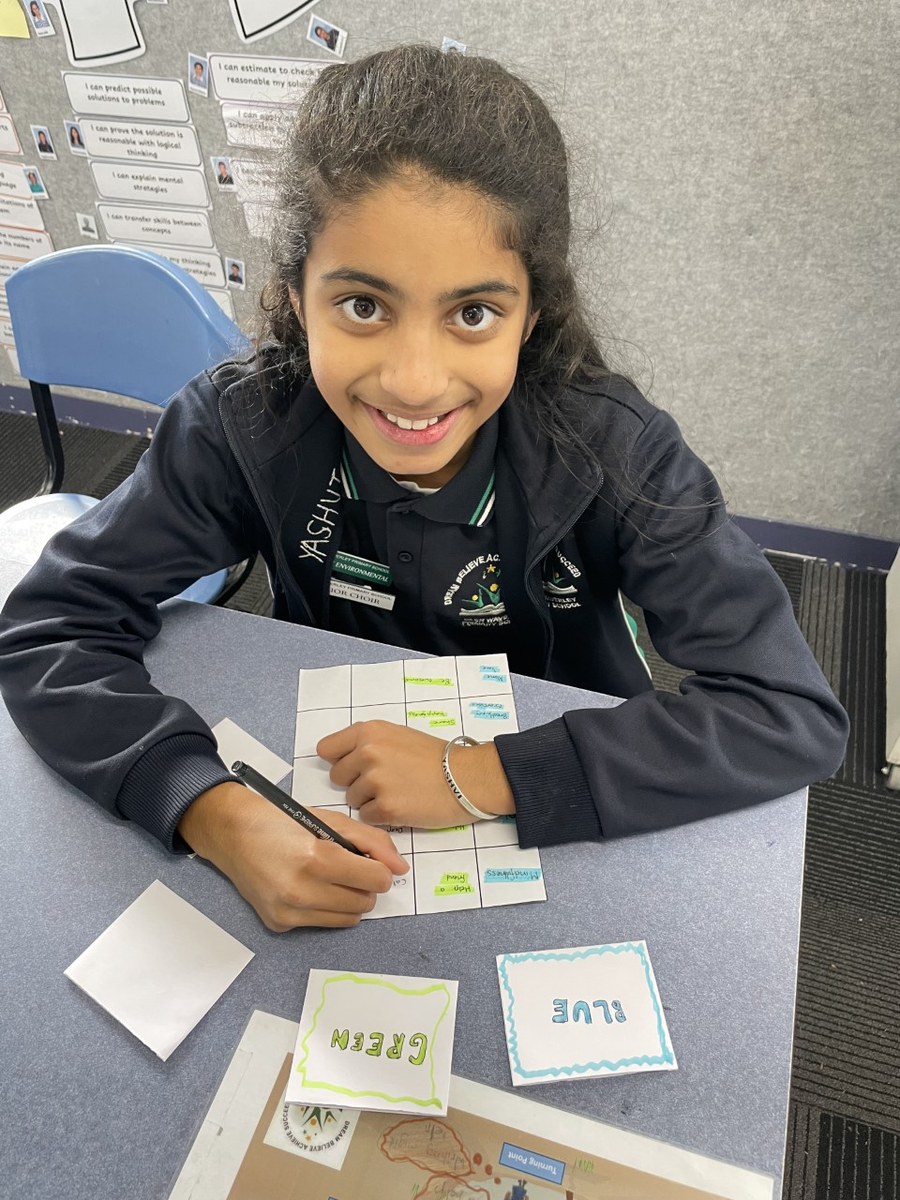
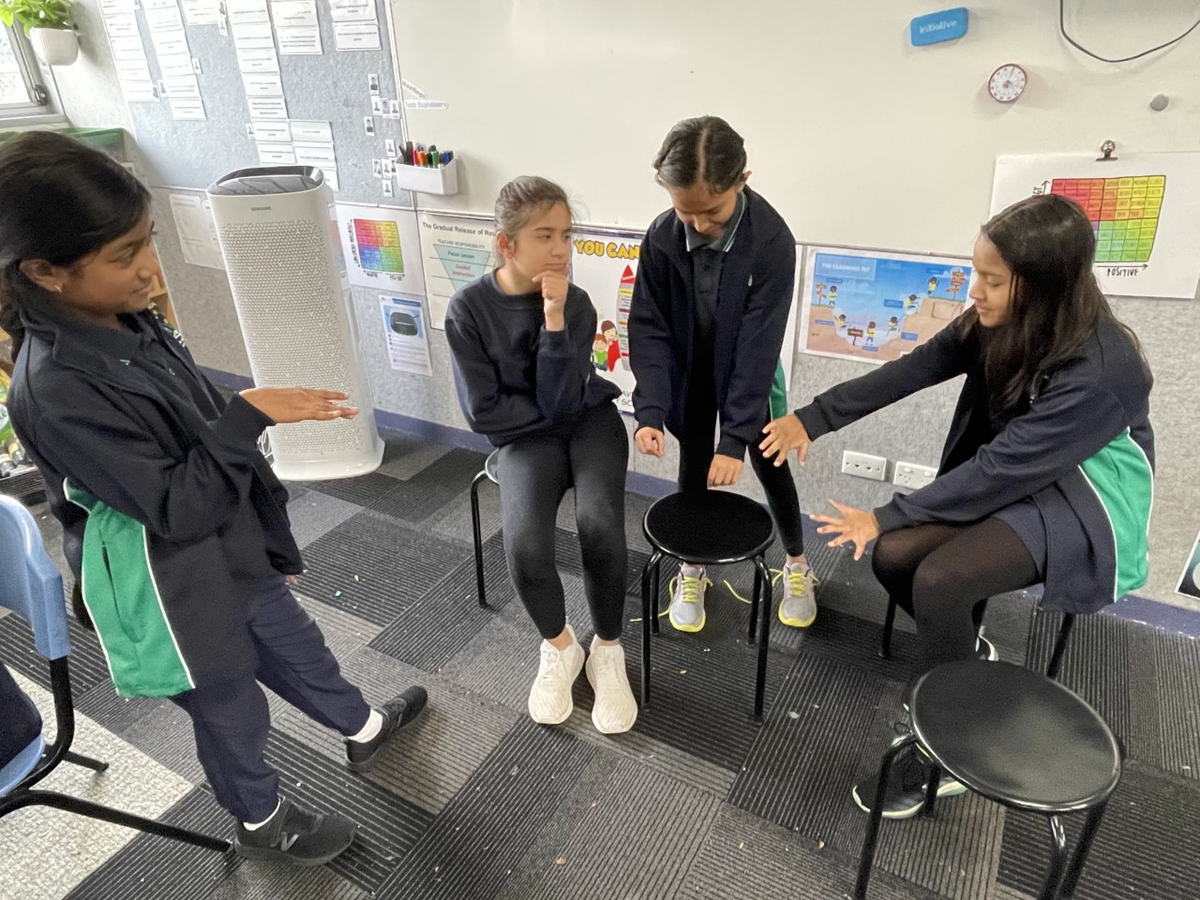


In Reading, students will investigate explicit strategies that authors use to engage their audience. This will allow our students to use multiple sentence types, rich ideas, precise vocabulary and build their awareness of different structures, such as linear and non-linear story lines.
This term in Writing, we are focussing on narratives, through the lens of the author. We will be looking to transfer the skills learnt from reading and apply them to our writing. Students will also continue with sustained writing as they are provided with the opportunity to write about a topic of their choice and in a style, they desire, with the aim of achieving their learning goal.
In Spelling, students will continue to identify their personal words by finding words they have misspelt from their writing book and inquiring about them throughout the week. There will be a new focus each week, such as; the ‘aw/or/au/ore’ sound, when ‘Y’ can be a vowel, ‘ie’ and ‘ei’. Alongside this, they will use this opportunity to build new vocabulary and apply this throughout their learning.
To support your child’s learning at home, you could encourage them to:
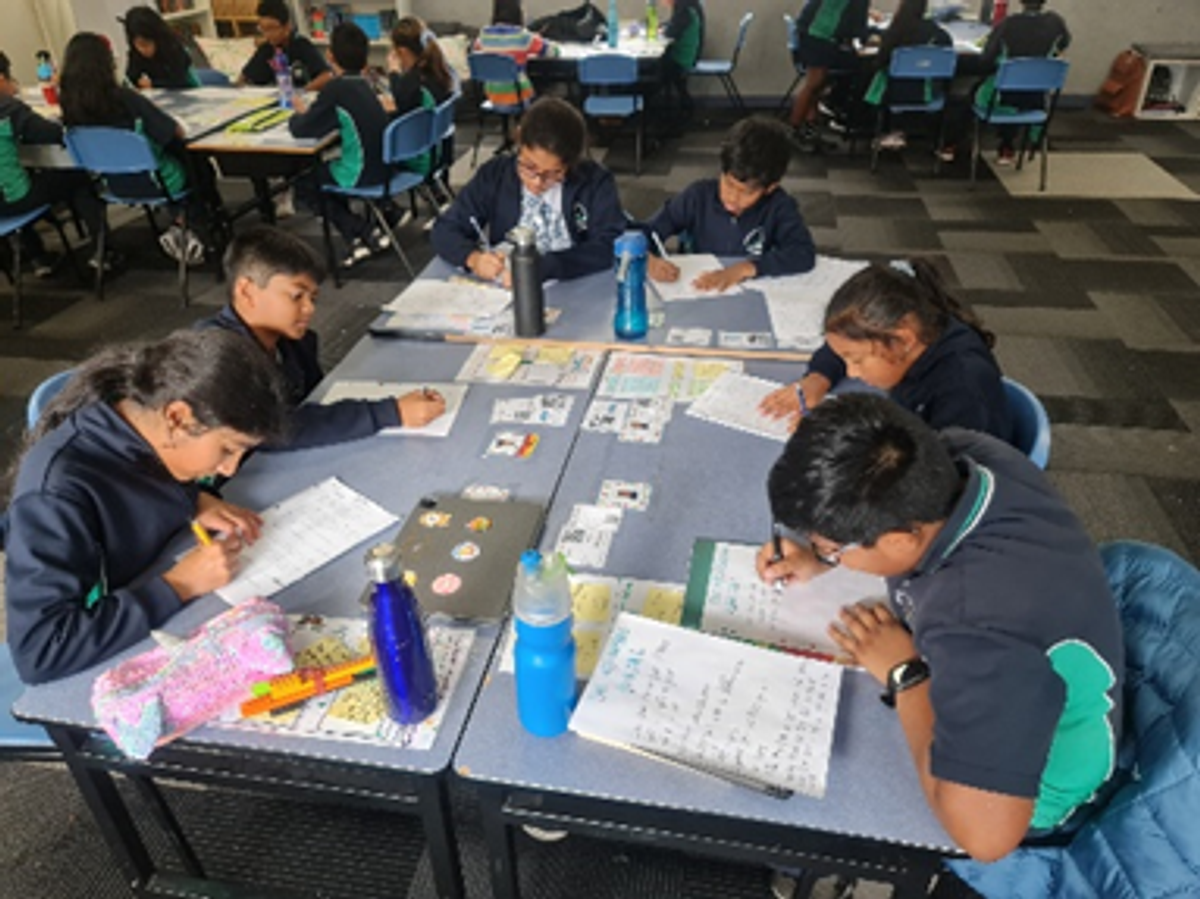
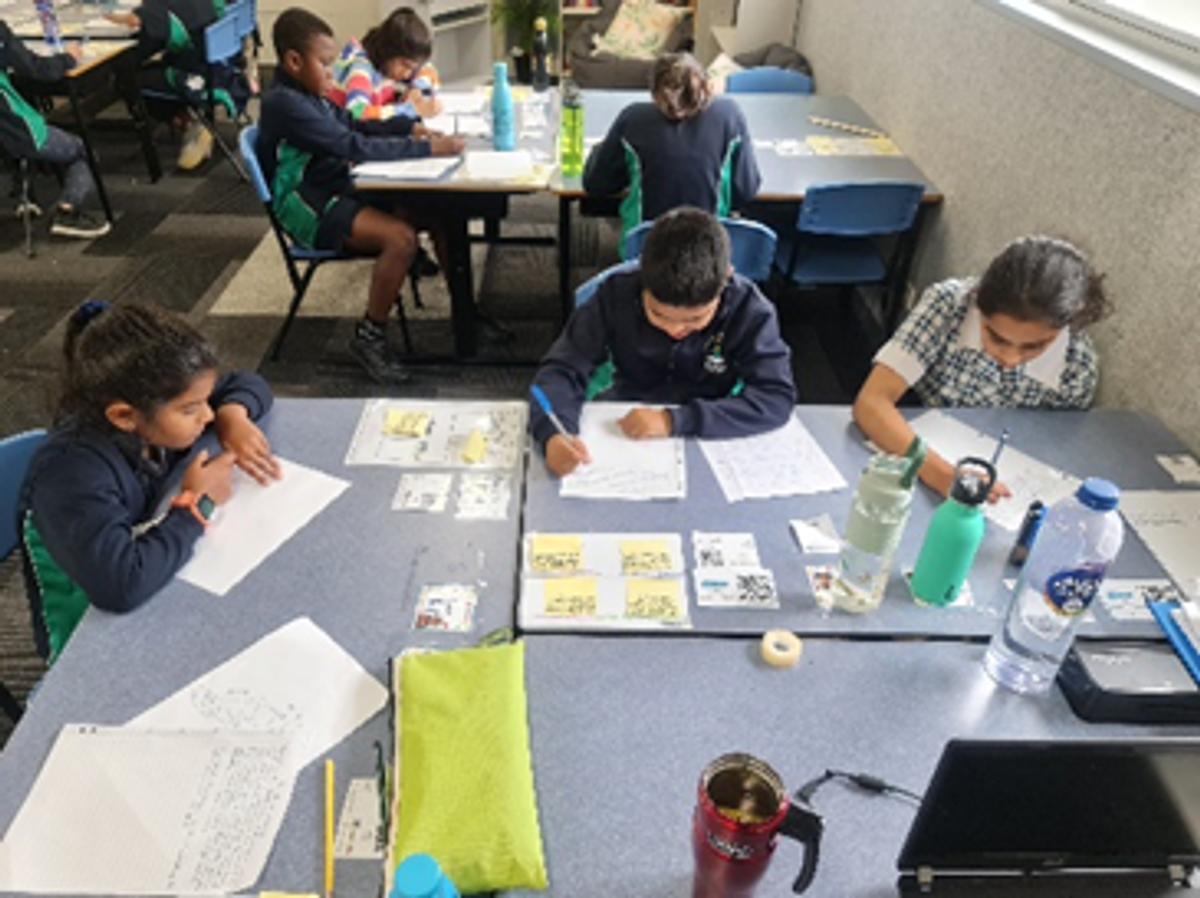
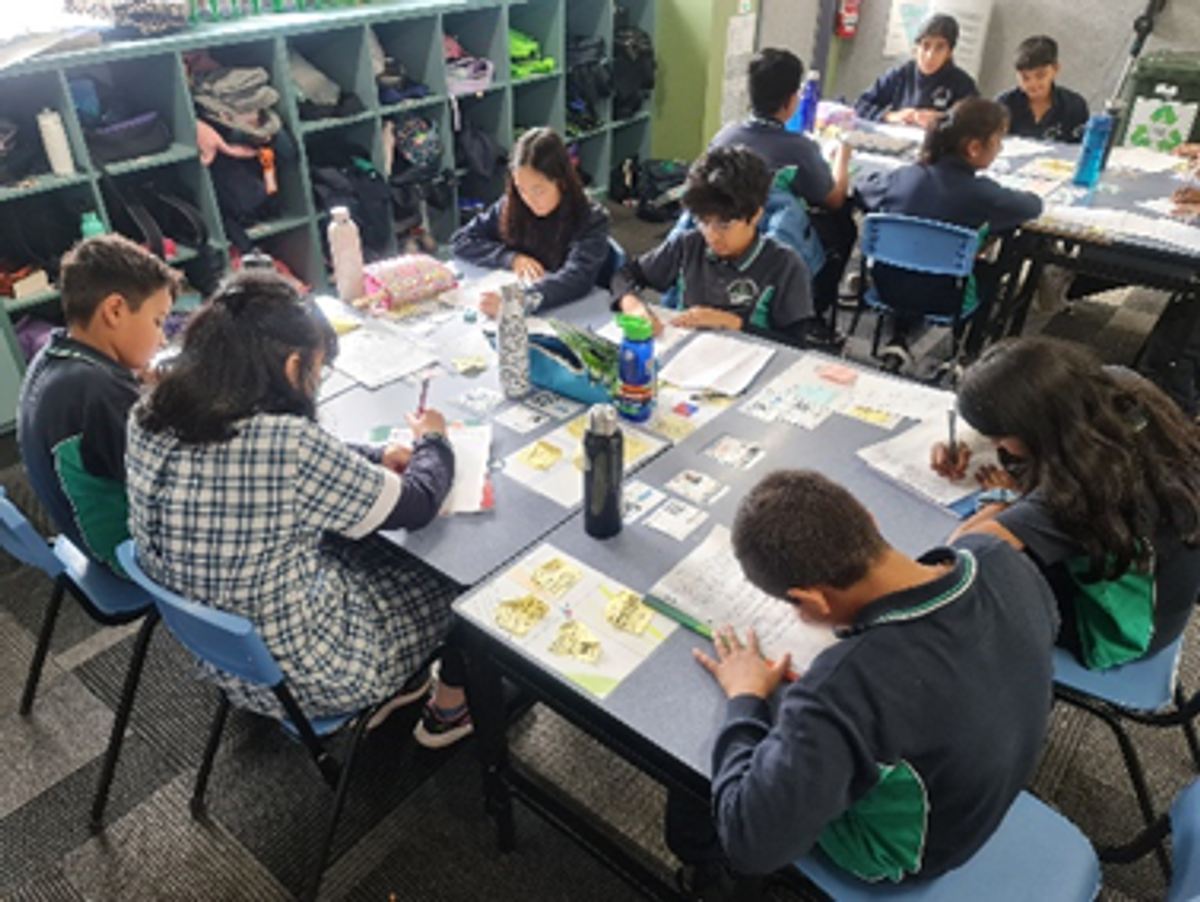
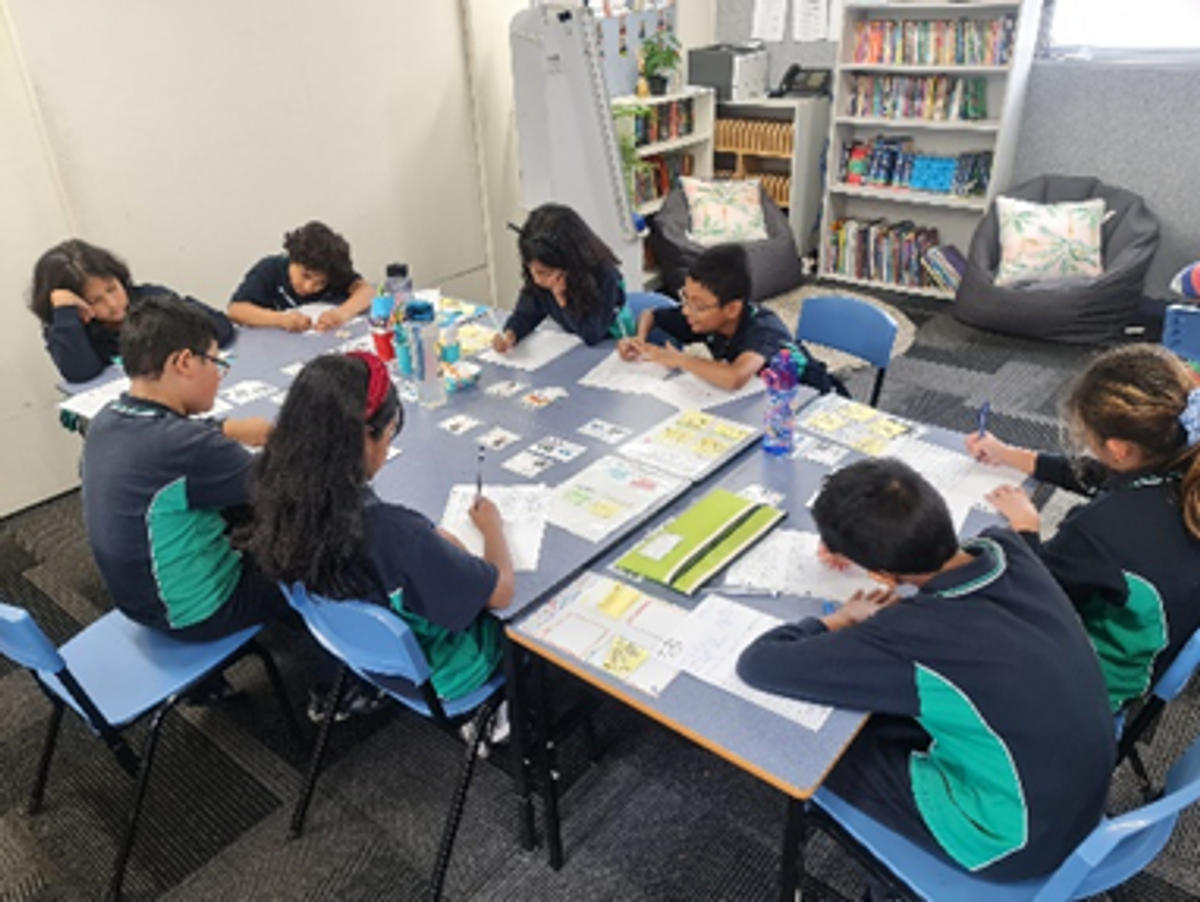




This term our focus in Mathematics will be in the field of Geometric Reasoning and Probability. We will be investigating how to apply the language of chance to the probability scale between 0 and 1; whilst incorporating Fractions to represent Probability. Students will be identifying different sample space and frequencies that will change the probability of an event happening. They will transfer their mathematical thinking to real-life contexts by designing and creating their own chance game which will involve recording different events that will be encountered.
To support your child at home, you can encourage them to:

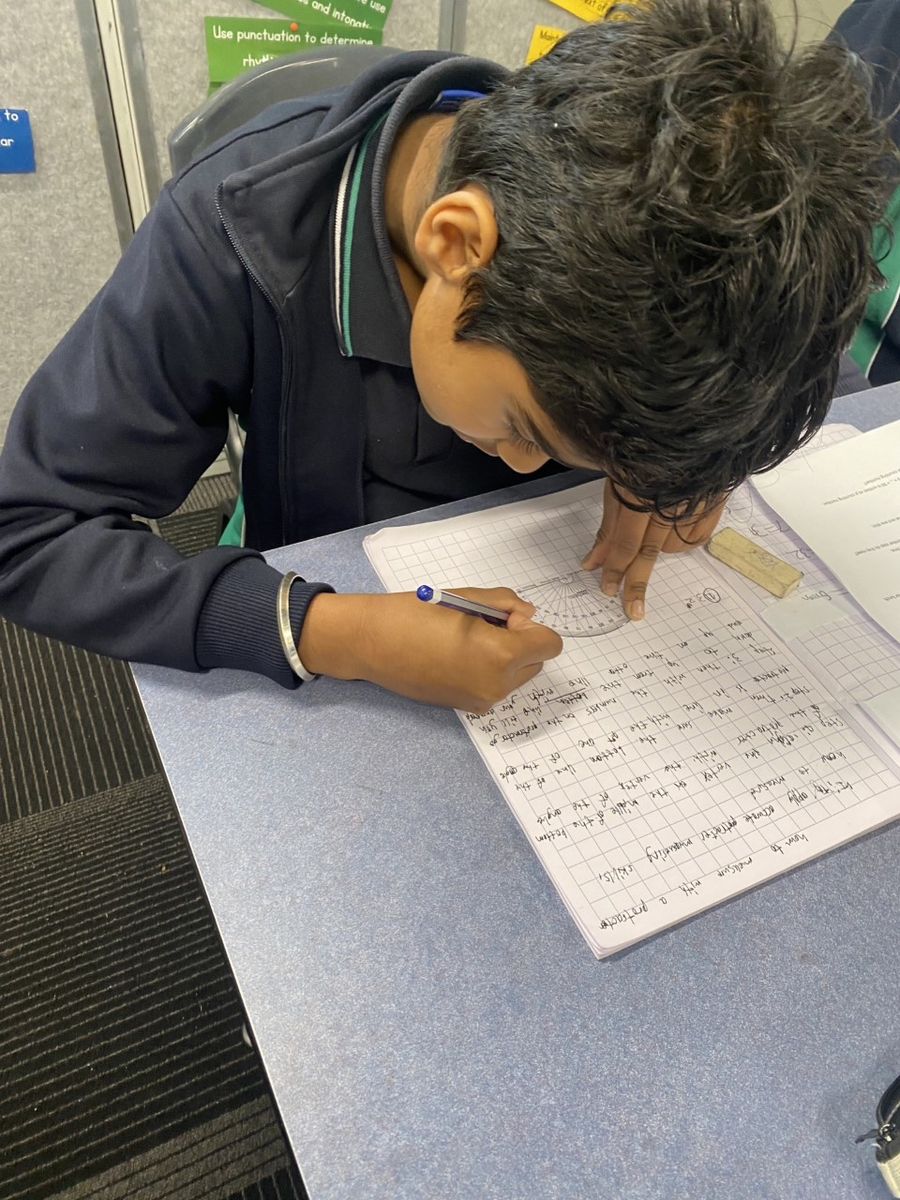
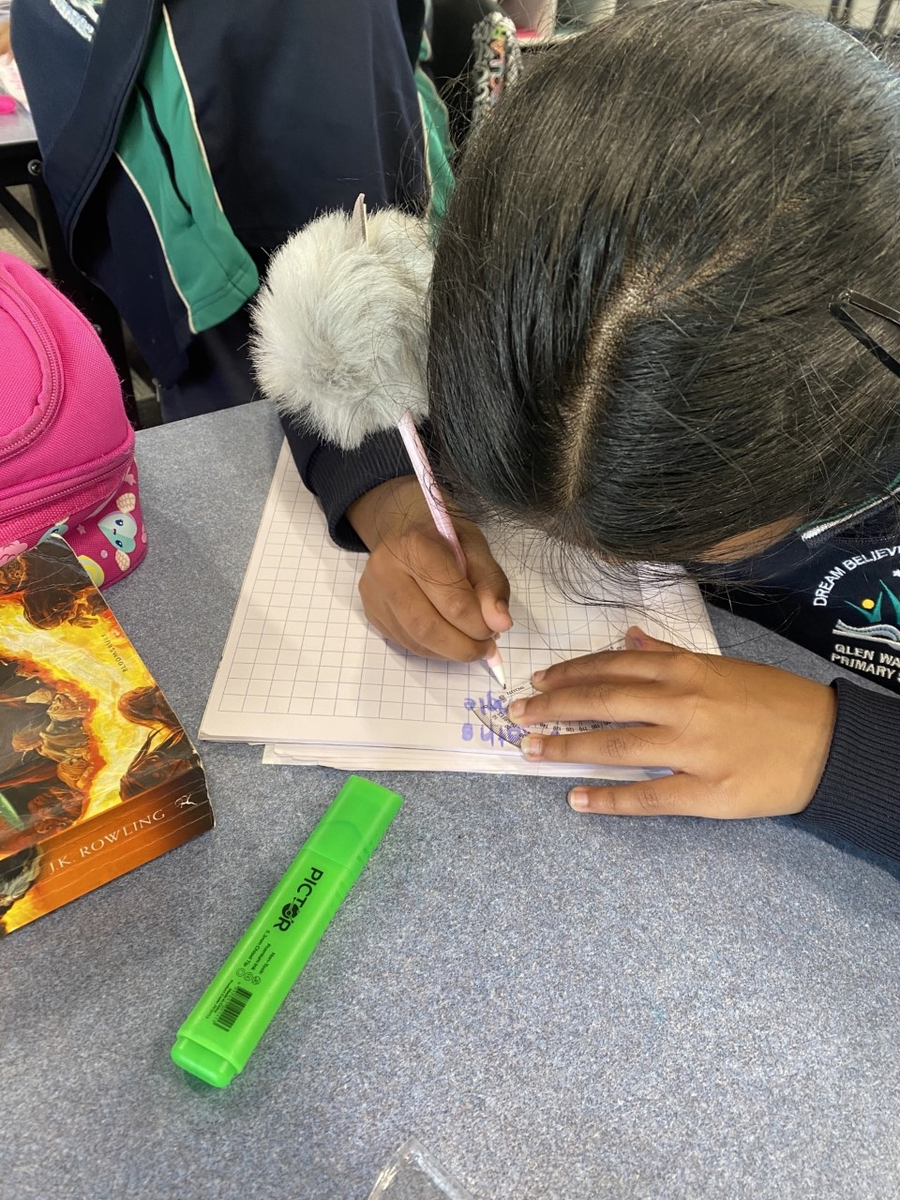
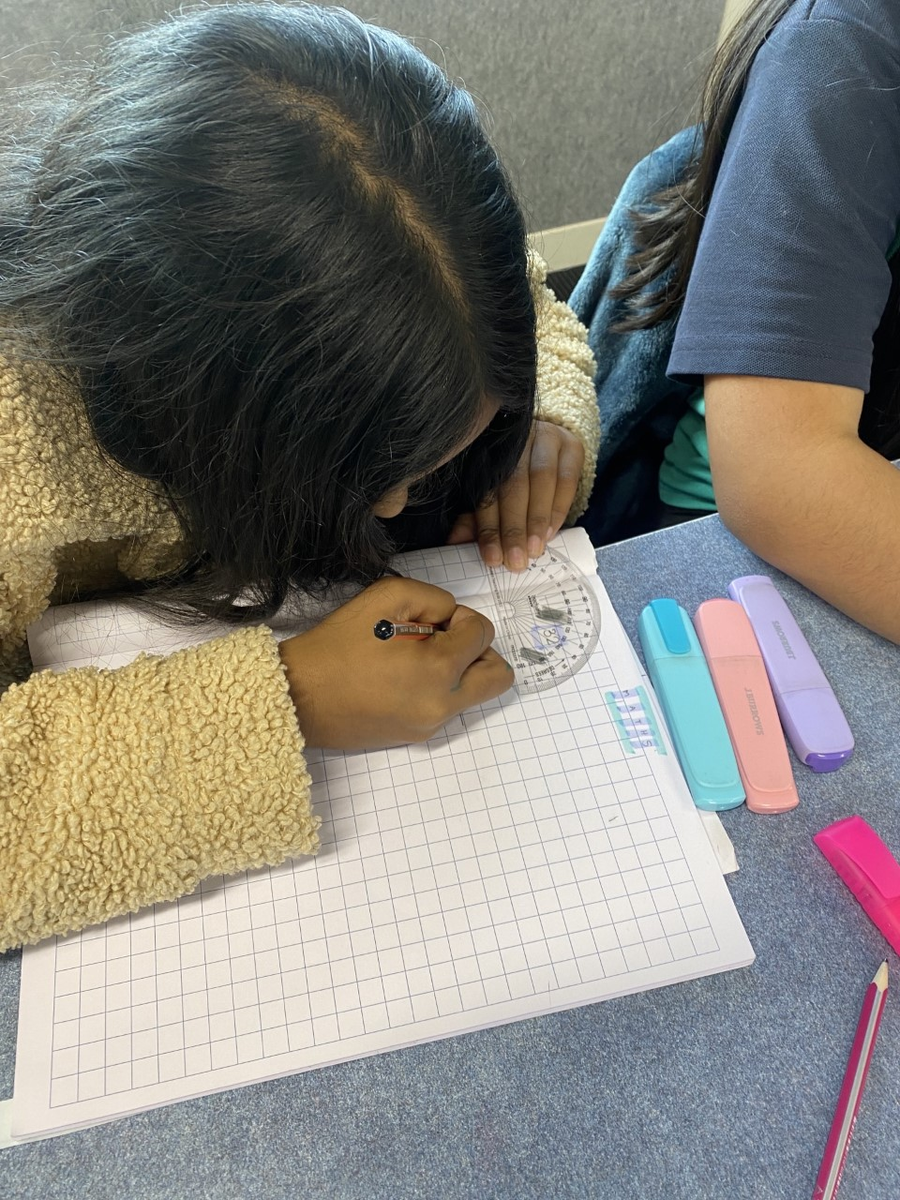
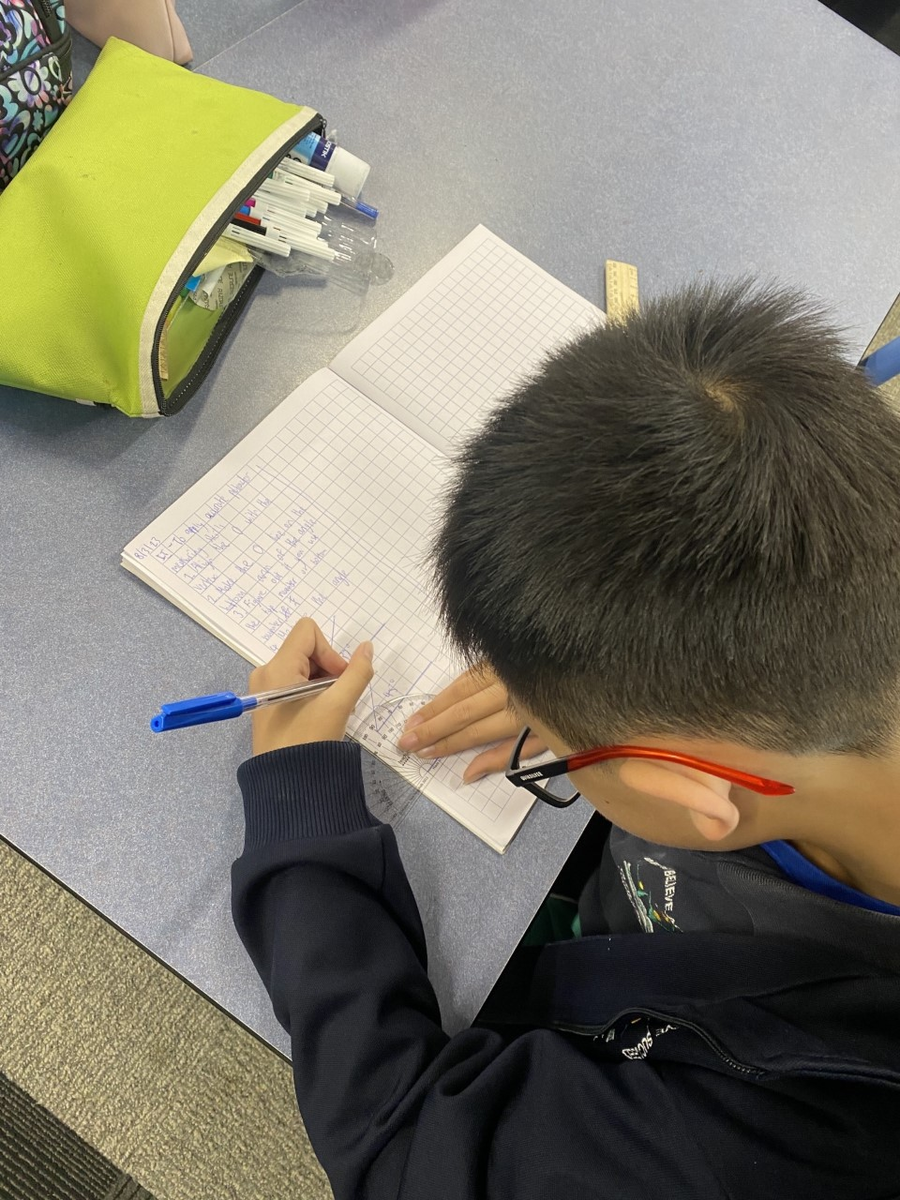





“We’re learning about how to use a protractor. This is important so we can measure accurately to the nearest degree. We also learnt about the different types of angles; this is important because the protractor can be read in two directions. We can use our knowledge of acute or obtuse angles to check if our answer is reasonable. We went deeper and learnt about supplementary, complementary, alternate and opposite angles.” Neervi
“This term we have been learning about supplementary and complementary angles. Supplementary angles equal 180 degrees, complementary equal 90 degrees. For example, a supplementary angle could be 135 degrees and 45 degrees.” Yuvi
“We learnt about angles and how different angles are different sizes (acute and obtuse). We collaborated and drew different types of angles for each other to measure. My tips for using a protractor, always keep your protractor straight and align it precisely on the line. When you measure, always check which direction to read starting from 0 degrees.” Ranuga
In Inquiry this term, students will be investigating the question, ‘What impacts the survival of flora and fauna?’ In preparation for the learning, Level Five teachers collected data and student voice to identify areas of curiosity and need for the cohort. Throughout the unit, students will explore the unique features of Australia’s native flora and fauna and the adaptations that help them to survive in their environment. They will investigate how Indigenous Australians cared for, and managed the land, for more than 60,000 years. As we continue throughout the term, students will look at what initiatives are currently in place around Victoria and Australia to promote the survival of flora and fauna. Students will take this newfound knowledge and take actions towards creating positive change. This will require students to use their critical and creative thinking to promote positive change.
To support your child’s learning at home, you could encourage them to:
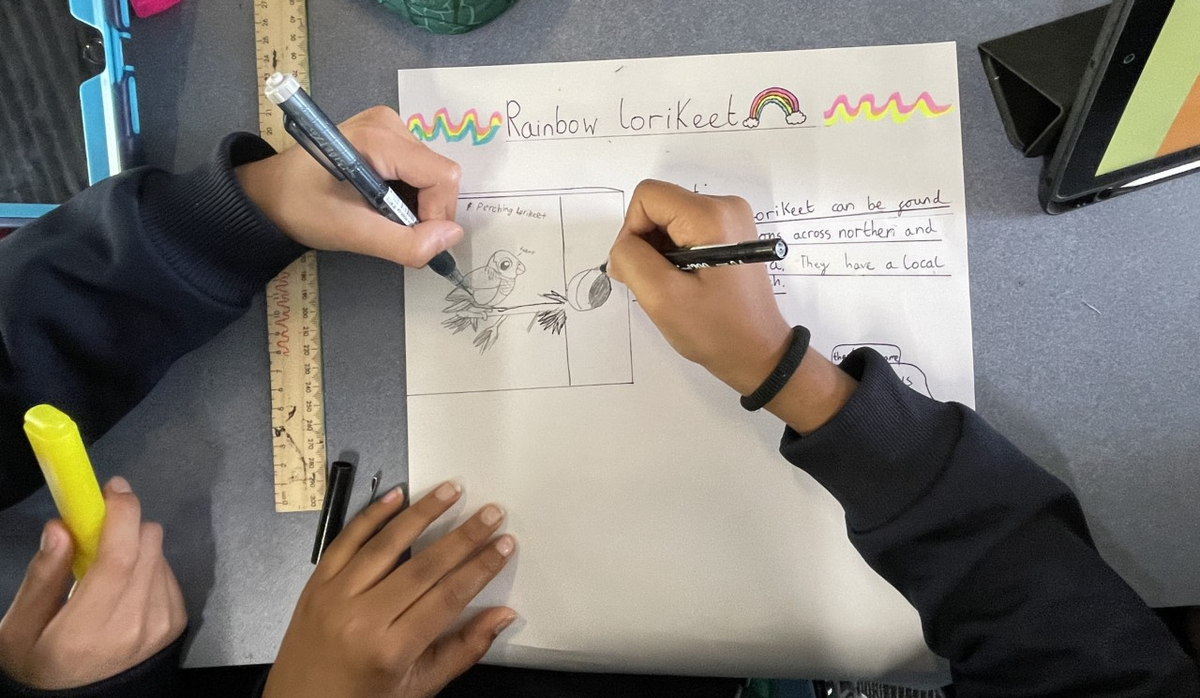
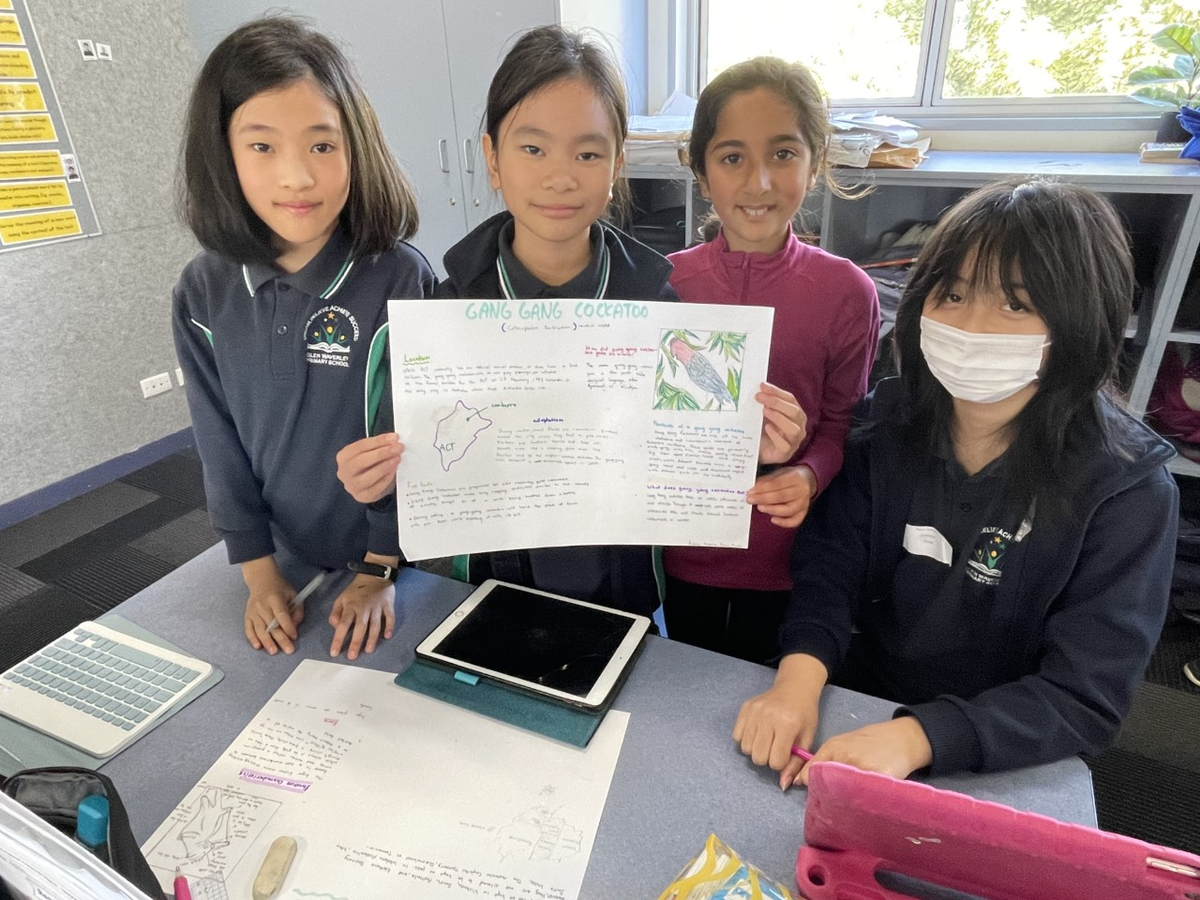


If you have any other queries or matters you would like to discuss with your teachers, please don’t hesitate to organise a meeting. Your child’s wellbeing is always at the centre of our thoughts and actions.
We thank you for your ongoing support and assistance. We are looking forward to a wonderful conclusion to Semester One.
Kind Regards,
Jess Wood, Kim Stevenson, Annie Lui, Sarah Hooper and Parveen Kaur